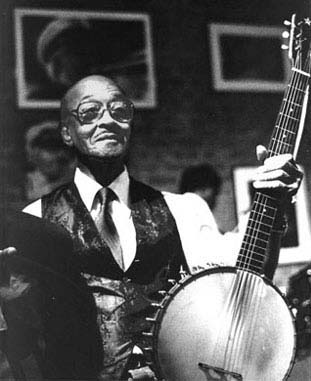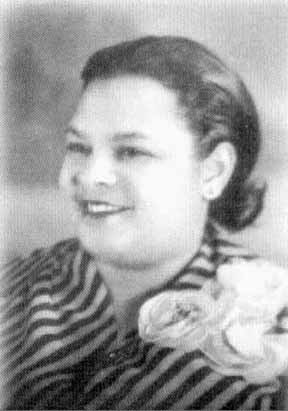Danny Barker was a New Orleans original. A jazz guitarist, a singer, a banjo player and a composer, Danny loved to entertain audiences with his stories as much as his music.
On this radio show The Jim Cullum Jazz Band evokes the memory of Danny Barker with tunes he often played, and pieces closely identified with the early New Orleans jazz tradition, including "Buddy's Habits," "Chimes Blues," and "Bogalusa Strut."
Joining us to tell Danny Barker's story is the award-winning actor and singer Vernel Bagneris. A New Orleans native who knew and worked with Barker, Vernel portrays Danny in first person accounts from his memoir, A Life in Jazz.
In 1909 Danny Barker was born into the aristocratic family of New Orleans music, the Barbarins. His grandfather Isidore Barbarin was an important figure in the great Onward Brass Band, the marching band in which both King Oliver and Louis Armstrong got their start. Barker was a nephew of Paul Barbarin, who taught him to play drums before the young musician decided to specialize on the ukulele. Danny Barker later switched to tenor banjo and guitar and did his first regular work with trumpeter Willie Pajeaud.
In early 1930 when he was 21 years old, Barker moved to New York and toured with Buddy Harris (1933), clarinetist Albert Nicholas (1935), and East Coast stride piano man James P. Johnson. He joined Benny Carter's Big Band in 1938, worked regularly with Cab Calloway from 1939 until Spring 1946, and then left to form a small group to accompany his wife, who recorded under the name, Blue Lu Barker.
Barker's two best-known hit songs include "Don't You Feel My Leg" composed for Blue Lu, and "Save the Bones for Henry Jones" recorded by Nat King Cole.
Danny Barker was active in freelance work in the late 50s and early 60s. He was a popular choice on record dates with trumpeter Henry 'Red' Allen, reedman Sidney Bechet, vibist Lionel Hampton, bass saxophonist Adrian Rollini and pianist and bandleader Teddy Wilson. Danny led his own ensemble at New York's Cinderella Ballroom and the 8th Wonder.
He moved back to New Orleans in May 1965 and was appointed Assistant to the Curator of the New Orleans Jazz Museum. He played regular gigs in New Orleans and lectured on jazz at several universities. Danny was one of the first musicians in New Orleans to mentor children and get them excited about traditional jazz in an era when rock 'n roll and modern jazz were king. He formed the Fairview Baptist Church Brass Band and helped launch the first New Orleans Jazz Festival.
Through the years, Danny Barker kept on playing the music he loved and telling his stories. He passed away in 1994 at the age of 85.
Photo credit for home page teaser image: Danny Barker. Photo courtesy jazzbanjo.com.
Text based on Riverwalk Jazz script by Margaret Moos Pick ©2002



